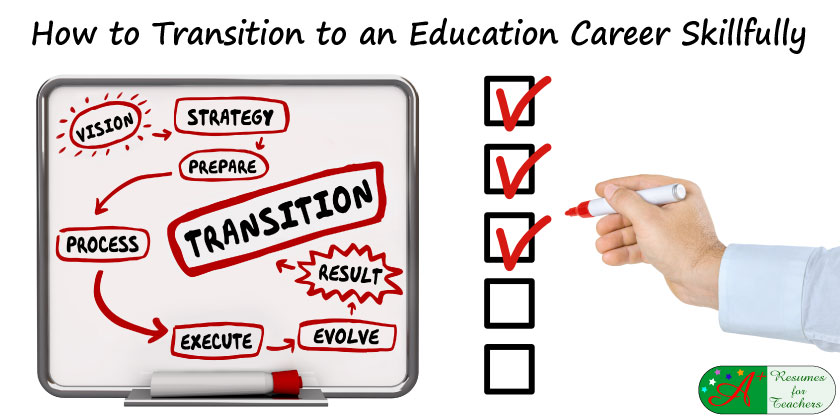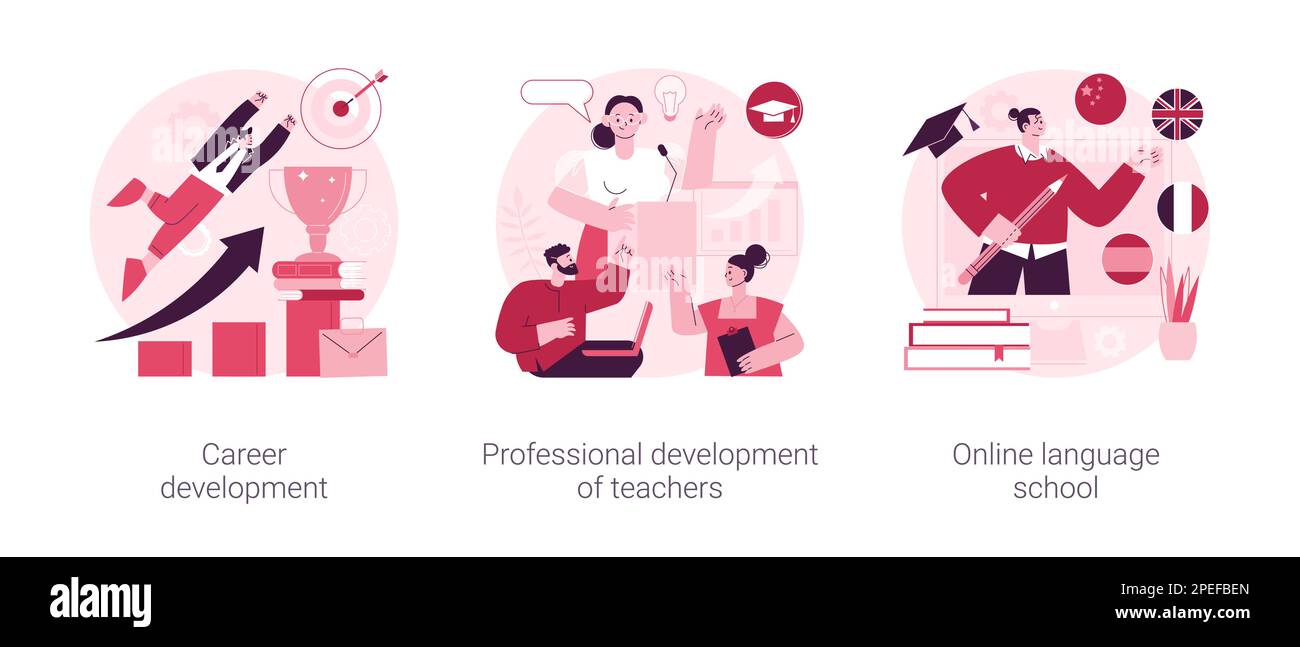Why Teachers Make Great Candidates for Career Transition
Teachers possess a unique combination of skills and qualities that make them attractive candidates for various careers beyond education. Their ability to communicate complex ideas, lead groups, and solve problems has been honed through years of experience in the classroom. These transferable skills are highly valued in many industries, making teachers a versatile and sought-after talent pool. As educators consider career transition, they can leverage their strengths to explore new opportunities and find fulfilling roles that align with their passions and interests.
One of the primary reasons teachers excel in career transition is their ability to adapt to new situations and challenges. In the classroom, they must think on their feet, responding to unexpected questions and situations. This skill serves them well in corporate environments, where adaptability and flexibility are essential. Additionally, teachers are trained to analyze complex information, identify patterns, and develop creative solutions – skills that are highly prized in industries such as consulting, research, and development.
Teachers are also skilled at building relationships, managing conflicts, and facilitating group dynamics. These interpersonal skills are essential in many careers, including human resources, sales, and marketing. Furthermore, teachers are accustomed to working under pressure, meeting deadlines, and managing multiple tasks simultaneously – skills that serve them well in fast-paced industries such as finance, technology, and healthcare.
As teachers explore new career paths, they can draw upon their experience in the classroom to identify potential areas of interest. For example, a teacher with a passion for technology may find a career in ed-tech or instructional design. A teacher with a talent for writing may consider a career in publishing or content creation. By recognizing their strengths and interests, teachers can navigate the career transition process with confidence and find new roles that align with their goals and aspirations.
Ultimately, teachers are well-equipped to succeed in a wide range of careers. Their unique blend of skills, experience, and passion makes them a valuable asset to any organization. As they consider career transition, teachers can leverage their strengths to explore new opportunities and find fulfilling roles that bring them joy, challenge, and personal growth.
Identifying Transferable Skills: A Key to Successful Career Transition
Teachers possess a wide range of skills that are highly transferable to various careers beyond education. However, many teachers struggle to identify and articulate these skills, making it challenging to navigate the career transition process. To overcome this hurdle, it’s essential to recognize and leverage the skills developed in the classroom.
One of the most valuable skills teachers possess is lesson planning. This skill involves designing engaging and effective learning experiences, which can be applied to roles such as instructional design, training and development, or project management. By highlighting their ability to plan and deliver complex lessons, teachers can demonstrate their capacity to manage multiple tasks, prioritize deadlines, and adapt to changing circumstances.
Classroom management is another critical skill that teachers can leverage in their career transition. This skill involves creating a positive and productive learning environment, which can be applied to roles such as human resources, sales, or customer service. By emphasizing their ability to manage diverse groups, resolve conflicts, and build strong relationships, teachers can showcase their interpersonal and leadership skills.
Assessment design is a third skill that teachers can transfer to various careers. This skill involves creating and implementing effective assessments to measure student learning, which can be applied to roles such as research and development, quality assurance, or data analysis. By highlighting their ability to design and implement assessments, teachers can demonstrate their analytical and problem-solving skills.
Other transferable skills that teachers possess include curriculum development, educational technology integration, and community engagement. By recognizing and articulating these skills, teachers can increase their chances of success in their career transition. It’s essential to remember that the skills developed in the classroom are not limited to education; they can be applied to a wide range of careers and industries.
When exploring “what jobs can teachers transition into,” it’s crucial to consider the skills and qualities that teachers bring to the table. By highlighting their transferable skills, teachers can increase their marketability and competitiveness in the job market. Whether it’s a career in corporate, non-profit, or government, teachers have the skills and expertise to succeed in a wide range of roles.
How to Leverage Your Teaching Experience in Corporate Roles
Teachers possess a unique combination of skills and experience that can be highly valuable in corporate roles. By leveraging their teaching experience, teachers can transition into careers such as training and development, human resources, or sales. To increase their chances of success, teachers should focus on highlighting their relevant skills and experience in their resume and cover letter.
One of the most significant advantages teachers bring to corporate roles is their ability to communicate complex information in a clear and concise manner. This skill is highly prized in training and development roles, where teachers can design and deliver engaging training programs for employees. By emphasizing their experience in lesson planning, curriculum development, and classroom management, teachers can demonstrate their ability to create effective training programs.
Teachers also possess strong interpersonal skills, which are essential in human resources roles. By highlighting their experience in building relationships with students, parents, and colleagues, teachers can demonstrate their ability to manage conflicts, facilitate group dynamics, and provide support to employees. Additionally, teachers can leverage their experience in assessment design and data analysis to inform HR decisions and improve employee performance.
In sales roles, teachers can leverage their ability to communicate complex information and build relationships with clients. By emphasizing their experience in presenting information to diverse audiences, teachers can demonstrate their ability to articulate the value of products or services to potential clients. Additionally, teachers can leverage their experience in managing classroom dynamics to build strong relationships with clients and provide excellent customer service.
When applying for corporate roles, teachers should tailor their resume and cover letter to highlight their relevant skills and experience. This can include using language from the job posting, emphasizing transferable skills, and providing specific examples of their experience. By doing so, teachers can increase their chances of success and demonstrate their value to potential employers.
For teachers considering “what jobs can teachers transition into,” corporate roles can be a fulfilling and challenging career path. By leveraging their teaching experience and highlighting their relevant skills, teachers can increase their chances of success and build a successful career in the corporate world.
Career Paths in Education-Adjacent Fields: Coaching, Consulting, and More
Teachers who are looking to transition out of the classroom but still want to remain in education-adjacent fields have a variety of career paths to consider. Coaching, consulting, and education policy are just a few examples of the many options available. These roles offer the opportunity to continue making a positive impact on education while also providing a change of pace and new challenges.
Coaching is a popular career path for teachers who want to continue working with students but in a more individualized setting. Coaches work one-on-one with students to help them set and achieve academic goals, develop study skills, and build confidence. This role requires strong communication and interpersonal skills, as well as the ability to adapt to different learning styles and needs.
Consulting is another career path that teachers may find appealing. Education consultants work with schools, organizations, and individuals to provide expertise and guidance on education-related issues. This may include developing curriculum, providing professional development for teachers, and conducting educational research. Consultants must have strong analytical and problem-solving skills, as well as the ability to communicate complex information in a clear and concise manner.
Education policy is a career path that allows teachers to make a broader impact on education. Policy analysts and advocates work with government agencies, non-profits, and private organizations to develop and implement education policies. This role requires strong research and analytical skills, as well as the ability to communicate complex information to diverse audiences.
Other education-adjacent fields that teachers may consider include education research, education technology, and education non-profits. These roles offer the opportunity to apply teaching skills and experience to new and challenging contexts.
When considering “what jobs can teachers transition into,” education-adjacent fields offer a range of options that allow teachers to continue making a positive impact on education. By leveraging their teaching experience and skills, teachers can find fulfilling and challenging careers in coaching, consulting, education policy, and more.
Teachers who are interested in pursuing careers in education-adjacent fields should highlight their relevant skills and experience in their resume and cover letter. This may include emphasizing their ability to communicate complex information, adapt to different learning styles, and analyze data. By doing so, teachers can increase their chances of success and find a career that aligns with their passions and interests.
Government Roles and Public Policy Careers for Former Teachers
Teachers who are looking to transition out of the classroom and into a career in government or public policy have a unique set of skills and experiences that can be highly valuable in these fields. Former teachers can leverage their expertise in education to shape policy, advocate for educational initiatives, and make a positive impact on their communities.
Government roles that may be of interest to former teachers include positions in education departments, policy analysis, and program management. These roles require strong analytical and problem-solving skills, as well as the ability to communicate complex information to diverse audiences. Former teachers can also consider careers in public policy, working with organizations that advocate for educational initiatives and shape policy at the local, state, or national level.
One of the key benefits of a career in government or public policy is the opportunity to make a broad impact on education. Former teachers can use their expertise to inform policy decisions, advocate for educational initiatives, and shape the future of education in their communities. Additionally, careers in government and public policy can provide a sense of stability and security, as well as opportunities for advancement and professional growth.
When considering “what jobs can teachers transition into,” government roles and public policy careers are an attractive option for many former teachers. By leveraging their expertise in education and their ability to communicate complex information, former teachers can find fulfilling and challenging careers in these fields.
Former teachers who are interested in pursuing careers in government or public policy should highlight their relevant skills and experience in their resume and cover letter. This may include emphasizing their ability to analyze complex data, communicate effectively with diverse audiences, and advocate for educational initiatives. By doing so, former teachers can increase their chances of success and find a career that aligns with their passions and interests.
Some examples of successful transitions into government roles and public policy careers include teachers who have become education policy analysts, program managers, or advocates for educational initiatives. These individuals have used their expertise in education to make a positive impact on their communities and shape the future of education.
The Non-Profit Sector: A Fulfilling Career Path for Teachers
Teachers who are looking for a career path that aligns with their values and passions may find the non-profit sector to be a fulfilling option. Non-profit organizations focused on education, youth development, and community engagement offer a range of career opportunities for teachers who want to make a positive impact on their communities.
One of the benefits of working in the non-profit sector is the opportunity to work on projects and initiatives that align with your values and passions. Non-profit organizations are often driven by a mission to make a positive impact on society, and teachers can find a sense of purpose and fulfillment in working towards this mission.
Teachers can leverage their skills and experience to secure roles in non-profit organizations, such as program management, education outreach, and community engagement. These roles require strong communication and interpersonal skills, as well as the ability to work with diverse stakeholders and communities.
When considering “what jobs can teachers transition into,” the non-profit sector is an attractive option for many teachers. By leveraging their expertise in education and their ability to communicate complex information, teachers can find fulfilling and challenging careers in non-profit organizations.
Some examples of successful transitions into the non-profit sector include teachers who have become program managers, education outreach coordinators, or community engagement specialists. These individuals have used their expertise in education to make a positive impact on their communities and advance the mission of their organizations.
Teachers who are interested in pursuing careers in the non-profit sector should highlight their relevant skills and experience in their resume and cover letter. This may include emphasizing their ability to communicate complex information, work with diverse stakeholders, and manage programs and projects. By doing so, teachers can increase their chances of success and find a career that aligns with their values and passions.
Entrepreneurial Ventures: Turning Your Passion into a Career
Teachers who are looking to turn their passion into a career may consider entrepreneurial ventures, such as starting an education-related business or creating educational resources. This career path allows teachers to leverage their expertise and creativity to develop innovative solutions that can make a positive impact on education.
One of the benefits of entrepreneurial ventures is the opportunity to work on projects that align with your values and passions. Teachers can use their expertise to develop educational resources, such as textbooks, educational software, or online courses, that can help students learn and succeed.
Another benefit of entrepreneurial ventures is the potential for financial rewards. Teachers who start their own businesses or create educational resources can earn a profit from their endeavors, which can be a welcome change from the often-limited salaries of traditional teaching positions.
When considering “what jobs can teachers transition into,” entrepreneurial ventures are an attractive option for many teachers. By leveraging their expertise and creativity, teachers can turn their passion into a career and make a positive impact on education.
Some examples of successful entrepreneurial ventures for teachers include starting an education-related business, creating educational resources, or developing educational software. These ventures require strong skills in areas such as marketing, finance, and product development, but can be highly rewarding for teachers who are passionate about education.
Teachers who are interested in pursuing entrepreneurial ventures should consider seeking out resources and support to help them get started. This may include attending workshops or conferences, joining online communities or networking groups, or seeking out mentorship or coaching from experienced entrepreneurs.
By turning their passion into a career, teachers can make a positive impact on education and achieve financial rewards. Entrepreneurial ventures are a great option for teachers who are looking to transition into a new career and make a difference in the world of education.
Navigating the Career Transition Process: Tips and Strategies
Navigating the career transition process can be challenging for teachers who are looking to transition into a new career. However, with the right strategies and support, teachers can successfully transition into a new career and achieve their goals.
One of the most important things to consider when navigating the career transition process is the importance of networking. Networking can help teachers connect with people in their desired field and learn more about the industry. It can also provide opportunities for teachers to learn about job openings and get their foot in the door.
Building a professional online presence is also crucial for teachers who are navigating the career transition process. This can include creating a LinkedIn profile, building a personal website or blog, and engaging with others on social media. By building a professional online presence, teachers can showcase their skills and experience to potential employers and increase their chances of getting hired.
Seeking mentorship or coaching is another important strategy for teachers who are navigating the career transition process. A mentor or coach can provide guidance and support as teachers navigate the transition process and help them make informed decisions about their career.
When considering “what jobs can teachers transition into,” it’s essential to think about the skills and experience that teachers possess and how they can be applied to different careers. By highlighting their transferable skills and experience, teachers can increase their chances of getting hired and achieving their career goals.
Some examples of successful career transitions for teachers include transitioning into corporate roles, such as training and development or human resources, or pursuing careers in education-adjacent fields, such as coaching or consulting. These transitions require strong skills in areas such as communication, leadership, and problem-solving, but can be highly rewarding for teachers who are looking to make a difference in their new career.
By following these tips and strategies, teachers can successfully navigate the career transition process and achieve their goals. Whether it’s transitioning into a new career or pursuing further education, teachers have the skills and experience to succeed in a variety of fields.








